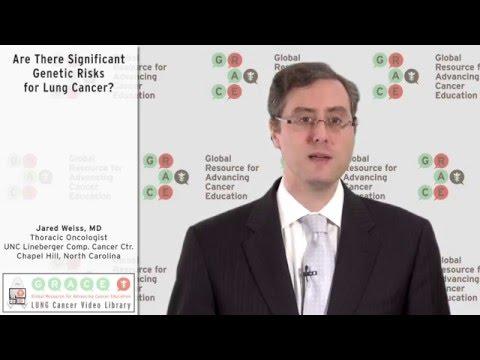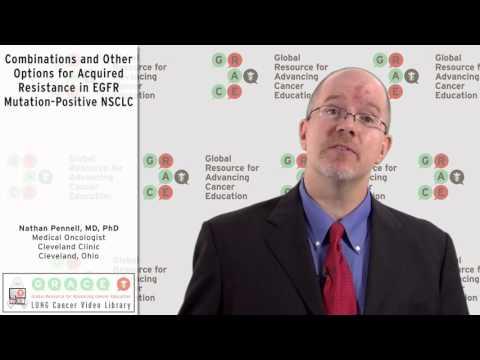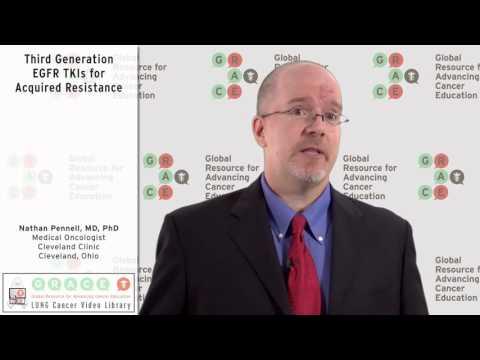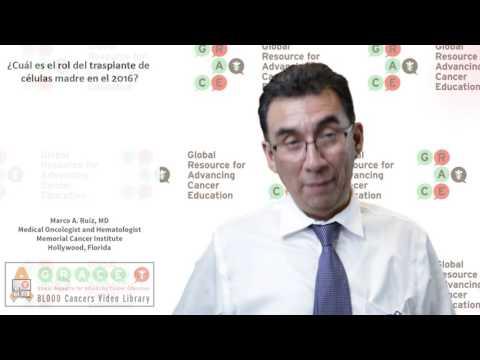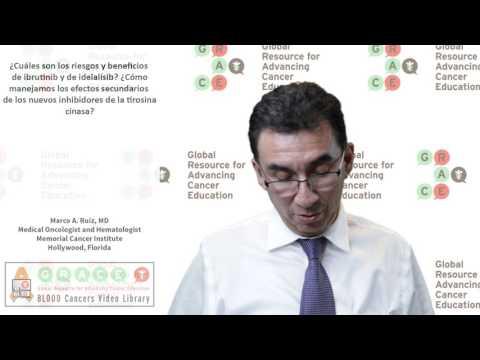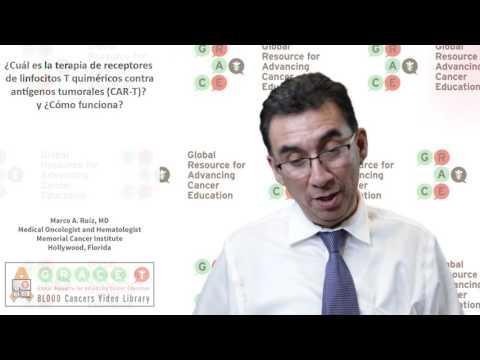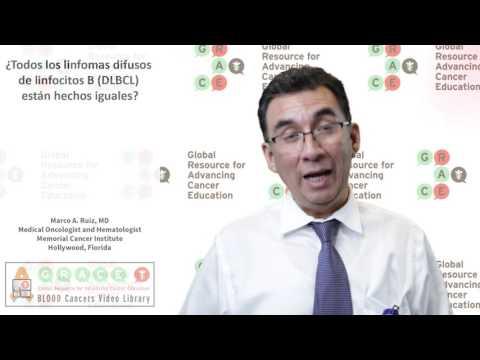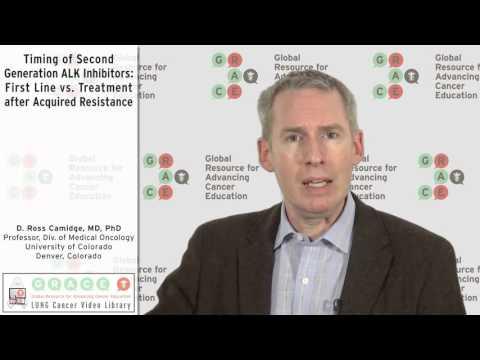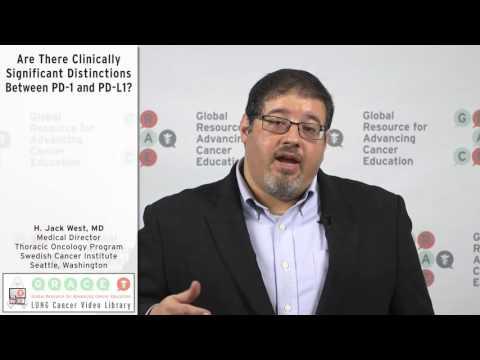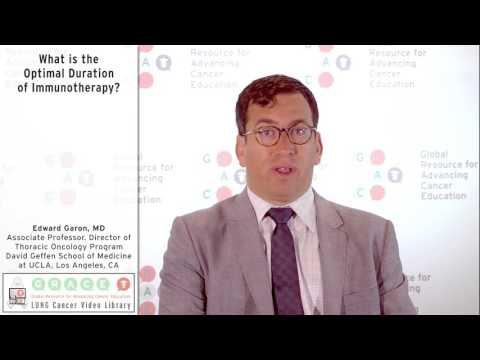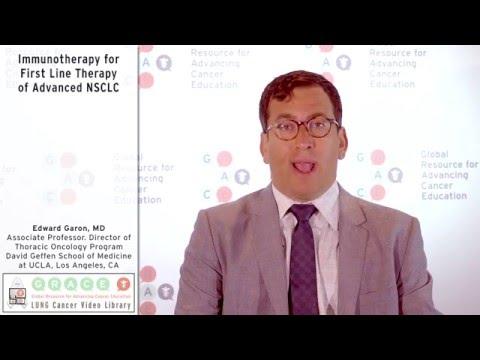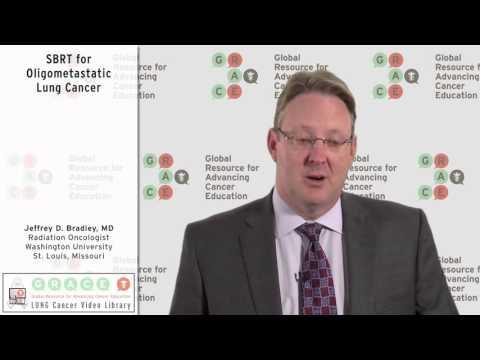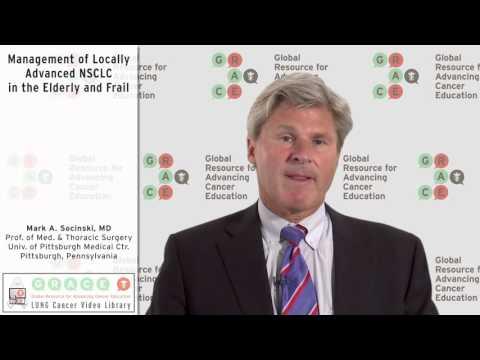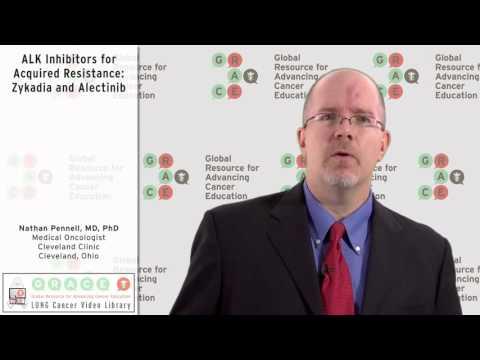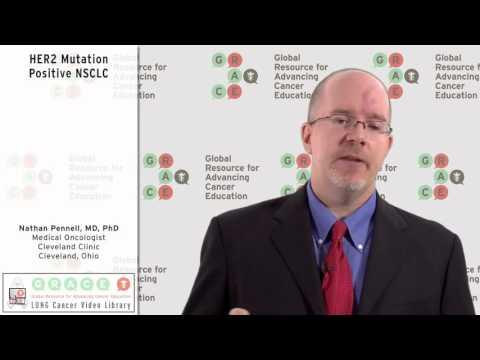Dr. Jared Weiss, UNC Lineberger Comprehensive Cancer Center, discusses the genetic risk (or lack thereof) for lung cancer.
Video Library
Search the Video Library
Video Language
Filter by Cancer Type:
Displaying Results 1 - 15 of 118
Dr. Nathan Pennell, Cleveland Clinic, describes other options for treatment of acquired resistance, including chemotherapy, ablation with SBRT and a combination of Gilotrif and Erbitux.
Please Note: New Treatments Have Emerged Since this Original Post
Dr. Nathan Pennell, Cleveland Clinic, discusses the concept of acquired resistance and new agents designed to address it, including Rociletinib and Merelitinib.
For this series, GRACE sat down with Marco Ruiz, MD, an oncologist at Memorial Cancer Institute specializing in hematologic or blood cancers, including leukemia, lymphoma, myelodysplastic syndrome (MDS) and myelofibrosis. He is also an experienced bone marrow transplant specialist and is active in
For this video on the risks and benefits of Ibrutinib Idelalisib, GRACE sat down with Marco Ruiz, MD, an oncologist at Memorial Cancer Institute specializing in hematologic or blood cancers, including leukemia, lymphoma, myelodysplastic syndrome (MDS) and myelofibrosis. He is also an experienced
GRACE sat down with Dr. Marco Ruiz to discuss information regarding the chimeric T cell receptors treatment against tumoral antigens (CAR-T) and how it works (¿Cuál es la terapia de receptores de linfocitos T quiméricos contra antígenos tumorales (CAR-T)? y ¿Cómo funciona ?). Stay tuned for more on
GRACE is pleased to present updates in blood cancer treatments for our Spanish Blood Cancer Library with Dr. Marco Ruiz. Dr. Ruiz shares information regarding Chronic Lymphocytic Leukemia & Non-Hodgkin Lymphoma, (Leucemia crónica linfocítica y linfoma no Hodgkin)., specifically "Are all diffuse
Dr. Ross Camidge, University of Colorado, addresses the question of whether to use a second generation ALK inhibitor as first line therapy or only after acquired resistance to crizotinib.
Dr. Jack West, Swedish Cancer Institute, compares the mechanism of action, efficacy and toxicity of PD-1 and PD-L1 inhibitors.
UCLA Med Center's Dr. Eddie Garon discusses the open question of the optimal duration of ongoing treatment with immunotherapy for lung cancer.
Dr. Eddie Garon considers the data on immunotherapies for first line treatment of advanced NSCLC and whether we are likely to use these agents instead of or in combination with standard chemotherapy soon.
Dr. Jeffrey Bradley, Radiation Oncologist at Washington University in St. Louis, defines oligometastatic lung cancer and describes the recent trend toward the use of stereotactic body radiation therapy to treat it.
Dr. Mark Socinski, University of Pittsburgh Medical Center, describes strategies for treatment of the elderly and frail patient with locally advanced NSCLC.
Dr. Nathan Pennell, Cleveland Clinic, discusses acquired resistance to Xalkori in ALK-positive patients, and second generation inhibitors designed to overcome that resistance, such as Zykadia and alectinib.
Dr. Nathan Pennell, Cleveland Clinic, describes treatment of NSCLC patients with HER2 mutations using agents such as Gilotrif or Herceptin.

